Falmouth to look at providing motorhome stopover
- Published
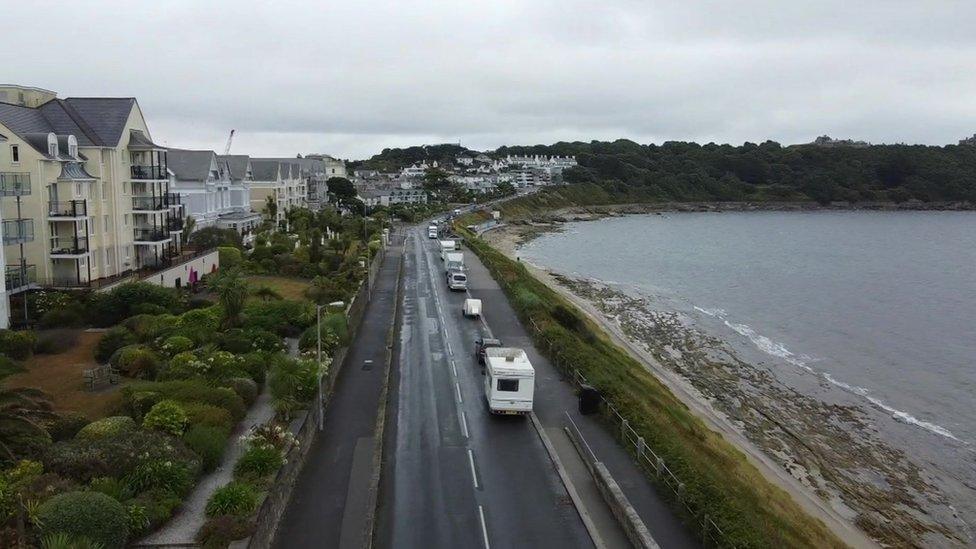
Cliff Road in Falmouth is a popular spot for people in motorhomes and campervans
Councillors in Falmouth are investigating whether creating a motorhome stopover could help solve issues caused by people staying in vans on the seafront.
They are getting advice from a campaign set up to create a network of such stopovers across the UK.
Concerns have been raised about the number of vans in the town.
Councillor Laurie Magowan said a group set up to look at the problem wanted to find a "sustainable solution".
Mr Magowan, from Cornwall Council, said: "There's been a mixture of concerns really, some are around the aesthetics and the impact that's having on Falmouth as a key tourist destination but also issues in some cases around the environmental impact and also genuine concerns about people living in vans, their situations which could be linked to homelessness or the housing crisis."
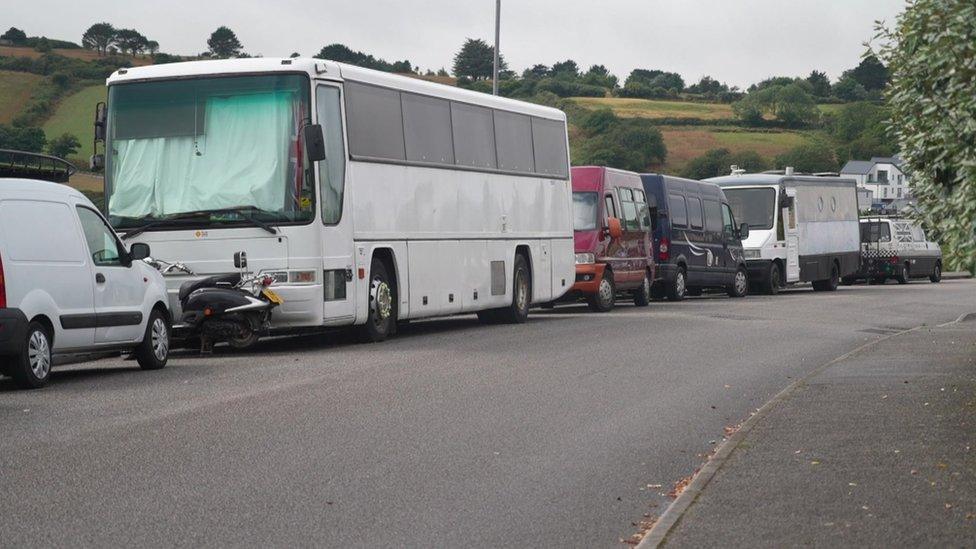
Mr Macgowan said there would be a consultation on parking restrictions later in the year
He said the Falmouth Town Council working group had found the reasons for people staying in vehicles were "complex" and influenced by more people holidaying in the UK due to Brexit and the pandemic, but there were also people who had been forced to live in vans due to the housing crisis and others for whom it was a lifestyle choice.
Mr Magowan said there would be a consultation on parking restrictions later in the year but they would also be speaking to members of the Campaign for Real Aires (CAMpRA) next month.
It comes after South Hams District Council said a trial allowing overnight parking for motorhomes in some of its car parks was a "success".
Aires - or motorhome stopovers - are public or private parking areas where self-contained motorhome and campervan users can stay overnight for free or for a small fee.
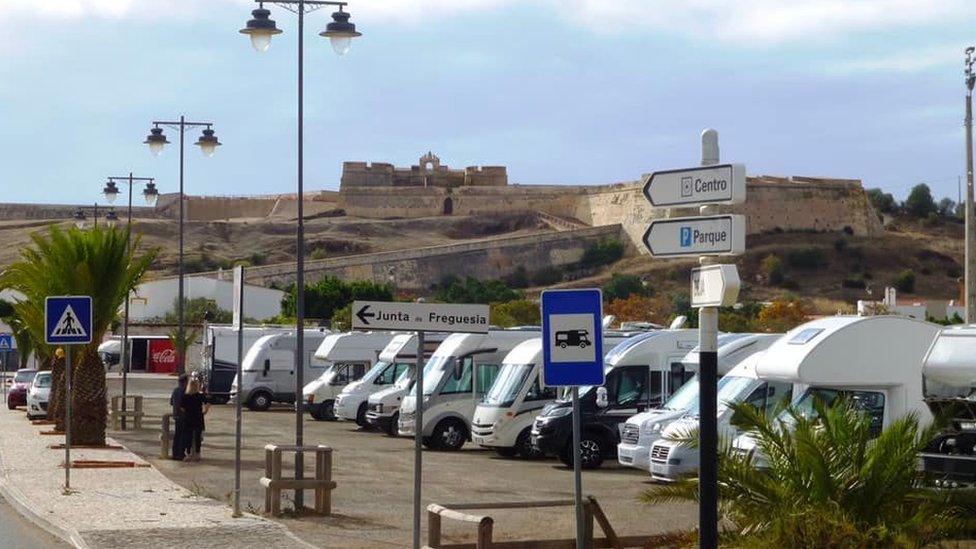
Aires - or motorhome stopovers - are public or private parking areas where self-contained motorhome and campervan users can stay overnight
They are popular in towns and villages across Europe and often include facilities such as access to fresh water and chemical disposal points.
Steve Haywood, from CAMpRA, said: "We're not making demands for parking or anything else, we are trying to promote the benefits to councils and businesses - that they're recognised in Europe for many years, that motorhomers not only... spend money when we stay but we travel all year around so when all the mainstream tourists have gone home and all your tourism businesses and car parks are empty... motor caravaners are still coming."
Mr Haywood said Brexit meant people could not stay as long in Europe as they had done previously meaning "that for a minimum of six months in every year over 400,000 registered motor caravans and maybe almost as many van conversions on the road are in the UK".

Steve Haywood, from the Campaign for Real Aires (CAMpRA), said the group was not asking for free overnight parking
Of speaking to the Falmouth working group in September, Mr Haywood added: "They have got people parking not unofficially [but] in areas where they would prefer not to have them.
"So we are saying can we provide somewhere for them where you want them to be rather than where they want to be."
Phil and Maria Hawkridge worked with CAMpRA a couple of months ago to set up a micro aire catering to just one vehicle at a time in Mullion.
They would like there to be more around the country.
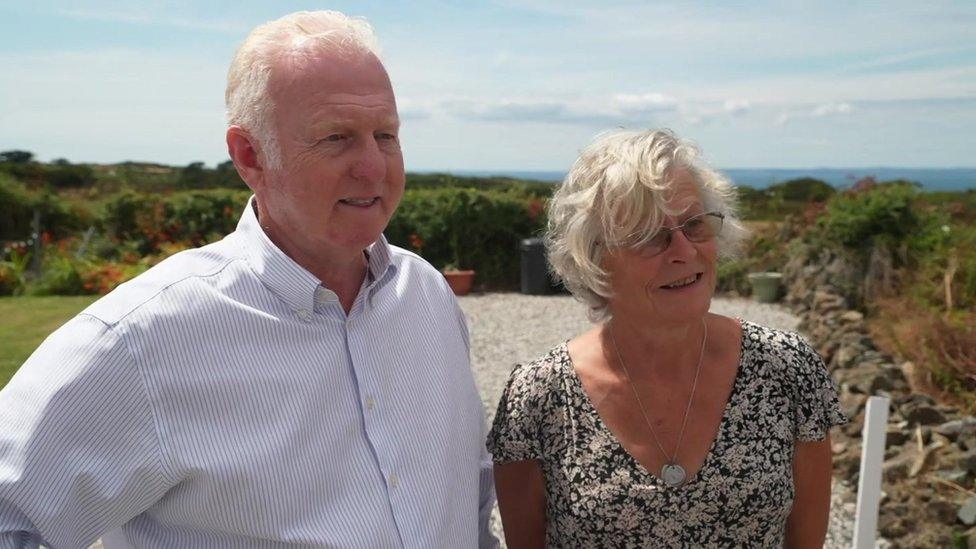
Phil and Maria Hawkridge worked with CAMpRA to set up a tiny aire in Mullion
Mr Hawkridge said it was a shame that in Cornwall "you've got all these car parks which are closed at night".
He said: "It's a resource they could use, they could allow motorhomers in and they could even charge a minimal fee for overnight parking."
Philip Desmonde, Cornwall Council's portfolio holder for transport, said the council was sometimes asked to consider providing pitches for motorhomes and campervans in its car parks, but Cornwall had many businesses such as campsites and holiday parks offering facilities for those holidaying in camper vans and motor homes.
He said: "The ban on overnight camping in council car parks, and on residential roads in tourist hotspots, is at the request of residents and local councils. Any change to the current position would require extensive consultation."
Mr Magowan said in Falmouth the working group wanted to find "sustainable solutions" by addressing the concerns of businesses and residents but also by looking to provide somewhere for people in a van to stay that was "safe, secure and affordable".

Follow BBC News South West on Twitter, external, Facebook, external and Instagram, external. Send your story ideas to spotlight@bbc.co.uk.
- Published15 August 2022
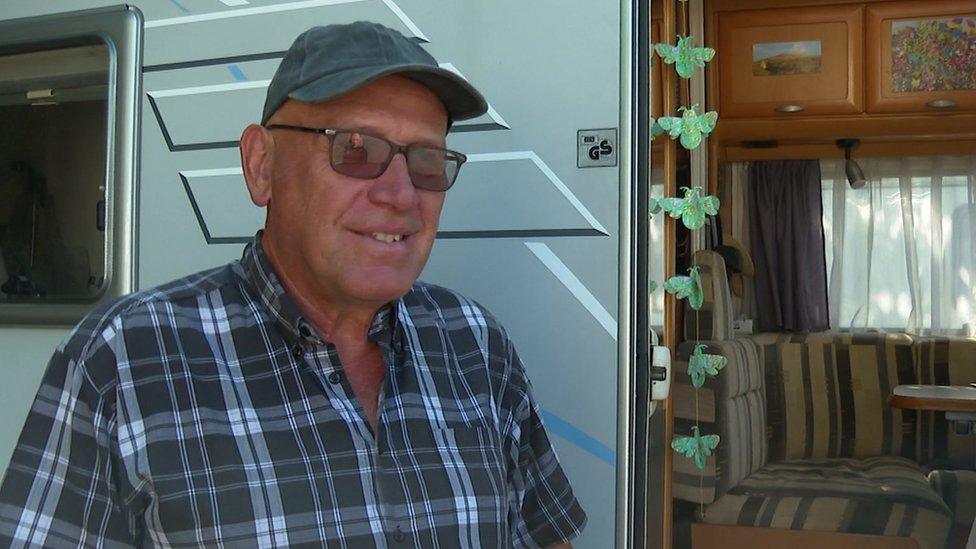
- Published21 July 2022
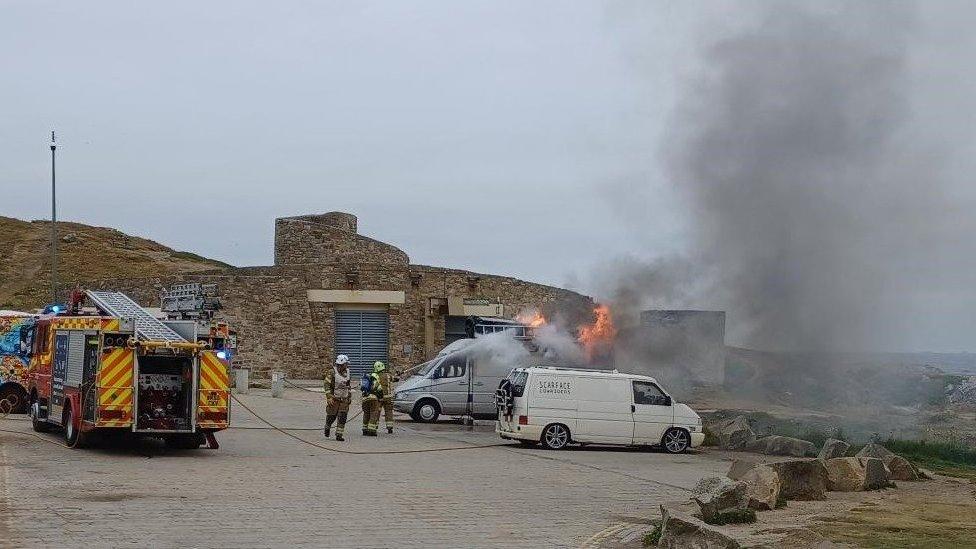
- Published22 March 2020
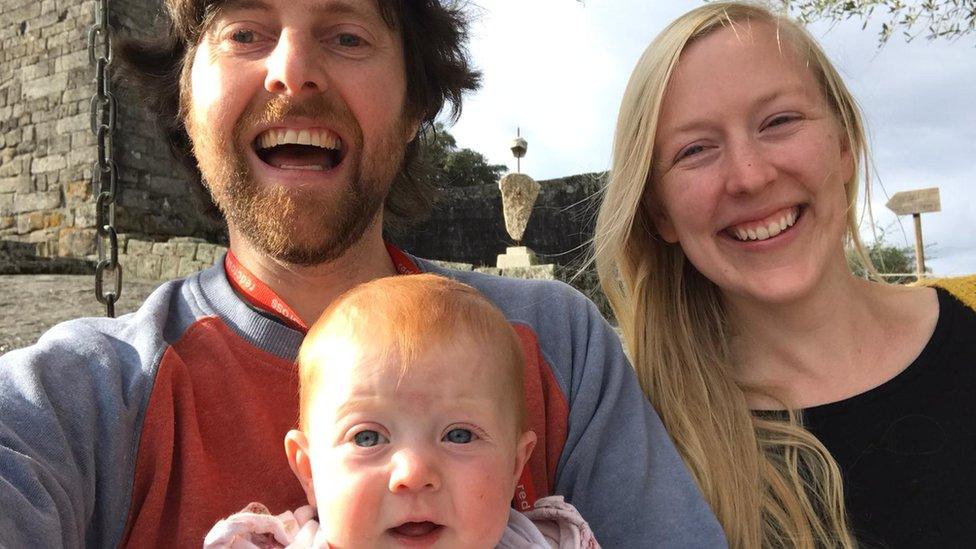
- Published1 May 2021
